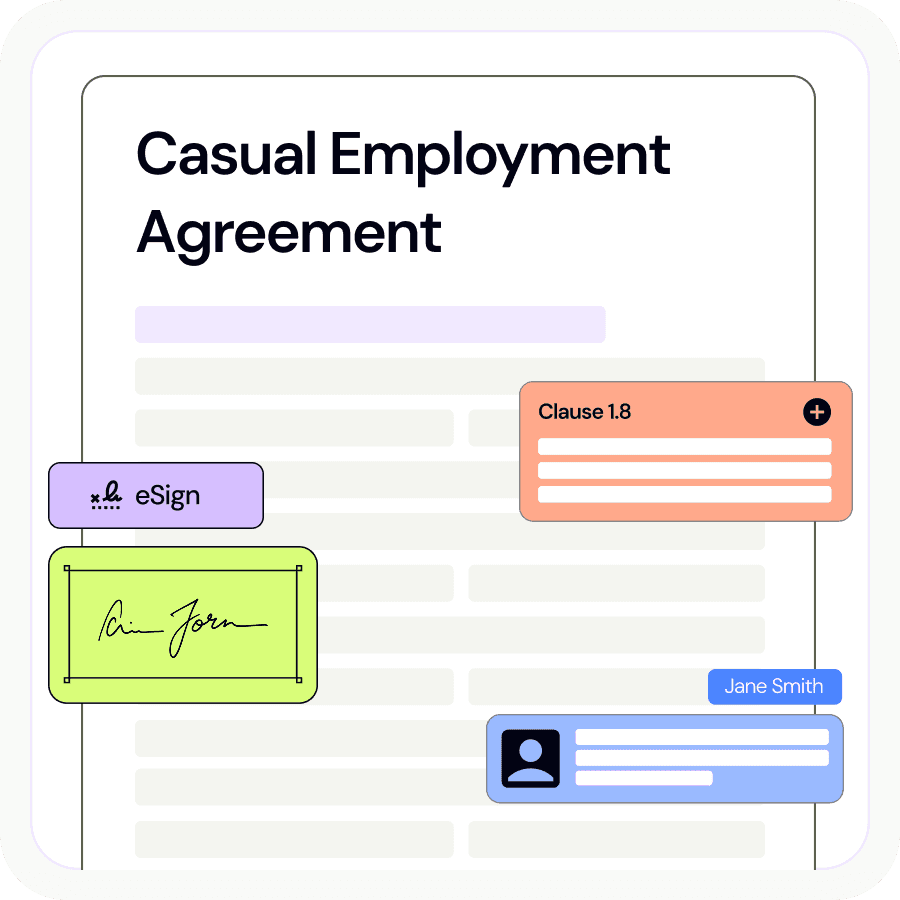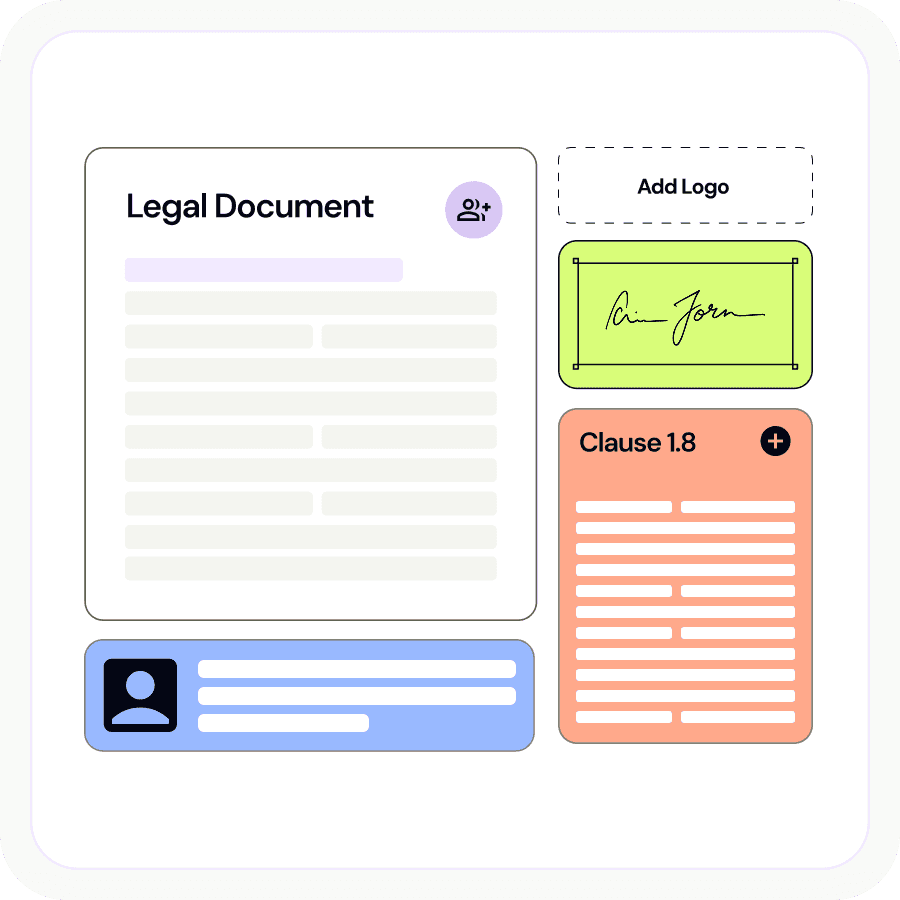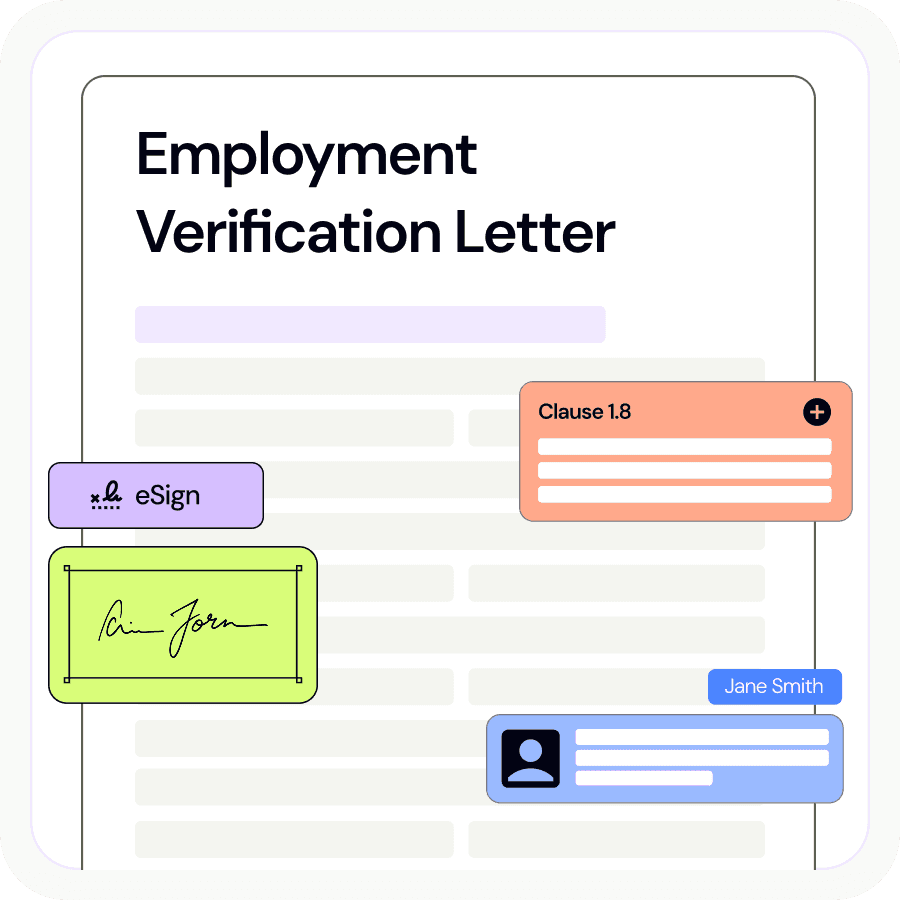Australia’s dynamic job market and growing demand for specialised talent signal success for many recruitment firms. But how do you start a recruiting business? What legalities do you need to think of?
This guide will walk you through the essential steps and legal considerations of launching your recruitment business. Let’s dive right in.
Table of Contents
What is a recruitment agency?
A recruitment agency, also known as a staffing or employment agency, acts as an intermediary between employers and job seekers. These agencies help businesses find suitable candidates for their open positions and assist job seekers in finding employment opportunities that match their skills and experience.
Key functions of a recruitment agency
In essence, recruitment agencies streamline the hiring process for employers; the best ones do so from start to finish. They also help job seekers find opportunities that align with their skills and career goals, aiming to match them with the best possible job for their expertise and lifestyle.
While recruitment is an agency’s core business, they typically also perform a range of other functions. These may include:
- Sourcing and screening candidates
- Conducting initial interviews
- Matching candidates with suitable job openings
- Providing market insights to clients
- Managing the hiring process
- Offering temporary staffing solutions
- Providing ongoing support to both clients and candidates
This comprehensive approach ensures a more efficient and effective hiring process, benefiting both employers and job seekers in the Australian job market.
Why start a recruitment agency in Australia?
There are several good reasons to open your employment firm in Australia, ranging from strong market demand and a robust economy to an increasing need for specialised talent and the potential for high-profit margins.
Australia’s job market offers recruitment firms many opportunities. The unemployment rate remains low at 4.2%, and the economy is performing fairly well, signalling a robust market for recruitment services.
More importantly, Australia has a very high demand for specialised talent which is difficult for companies to source on their own. For instance, the technology sector is experiencing rapid growth, leading to high demand for qualified professionals such as software developers, data analysts, and cybersecurity specialists. Other growth sectors include healthcare and skilled trades.
Additionally, the recruitment industry in Australia offers the potential for substantial profits, with major players like Hays Specialist Recruitment (Australia) generating revenue of $1,100.4 million in 2024.
These trends, coupled with the strong market conditions, make Australia an attractive destination for starting a recruitment agency.
Legal requirements for starting a recruitment agency in Australia
Are you ready to start your employment agency in Australia? Here are the legal details you’ll need to consider as you do so.
Business registration and licences
To start your recruitment agency in Australia, you’ll need to complete several important steps:
- Choose a business structure (e.g., sole trader, partnership, or company).
- Register your business name with the Australian Securities and Investments Commission (ASIC).
- Obtain an Australian Business Number (ABN).
- Register for Goods and Services Tax (GST) if your annual turnover exceeds $75,000.
- Apply for any necessary state or territory-specific business licences.
It’s important to note that there is no specific federal licence required to operate a recruitment agency in Australia. However, some states and territories may have their own licensing requirements. For example, in Queensland, you may need to obtain a Private Employment Agent’s License.
Employment laws and compliance
Just like all businesses in Australia, your recruitment agency will need to comply with various employment laws and regulations. Here are some of the main legal frameworks you’ll need to keep in mind.
Fair Work Act 2009
The Fair Work Act 2009 is the cornerstone of Australian employment law. It sets out the National Employment Standards (NES), which outline the minimum entitlements that your business must provide to all employees. There are 11 NES, which include maximum weekly hours, annual leave, personal/carer’s leave, and redundancy pay.
It also covers aspects such as modern awards, enterprise agreements, and unfair dismissal protections.
Like any business, your recruitment agency must ensure they comply with these provisions for their own staff. However, it must also oversee that fair work agreements are executed for all candidates you place with clients.
Anti-discrimination laws
Australian anti-discrimination laws operate at both federal and state/territory levels. Key federal laws include:
- Age Discrimination Act 2004
- Disability Discrimination Act 1992
- Racial Discrimination Act 1975
- Sex Discrimination Act 1984
These laws prohibit discrimination in employment based on protected attributes such as age, gender, race, disability, sexual orientation, and religious beliefs.
Your agency must ensure its practices do not discriminate against candidates or employees, either directly or indirectly. To do so, it’s best to elaborate a non-discrimination policy that accounts for all of these legal aspects.
Privacy Act 1988
The Privacy Act of 1988 regulates how organisations collect, use, store, and disclose personal information. This is particularly relevant to a recruitment agency because you will be collecting and handling candidate data. When doing so, make sure to:
- Obtain consent to collect and share personal information.
- Securely store all candidate data.
- Provide candidates with access to their personal information upon request.
- Have a clear privacy policy that outlines how personal information is handled.
Work Health and Safety (WHS) laws
WHS laws in Australia aim to protect the health, safety, and welfare of all workers. Your organisation must ensure a safe working environment for your own employees. You should also collaborate with client companies to ensure that placed candidates work in safe conditions.
You should have a work health and safety policy in place. Additionally, it’s a good idea to provide staff and clients with WHS training and perform occasional audits.
Superannuation Guarantee
The Superannuation Guarantee requires employers to pay a percentage of an employee’s earnings into a superannuation fund. For recruitment agencies, this means:
- Ensuring proper superannuation contributions for your own employees
- Understanding your obligations for temporary or contract workers you place with clients
- Keeping accurate records of superannuation payments
- Staying updated on the current superannuation guarantee rate
By adhering to these laws and regulations, recruitment agencies can operate ethically and legally in the Australian market, protecting both your business and the rights of the workers you place.
Creating a business plan for your recruitment agency
Now that you know the legal ins and outs of starting a staffing agency, let’s talk about the business aspects. First off, you’ll need a business plan.
A well-crafted business plan is crucial for the success of any business. This document serves as a roadmap, guiding your business and outlining your goals and strategies. Here are the key components to include:
- Executive summary: Start with a concise overview of your agency’s vision and objectives. This section should capture the essence of your business.
- Company description and structure: Describe your agency, including its ownership and management team. Explain how your structure supports your goals.
- Market analysis and target industries: Conduct thorough research to identify your target industries and potential clients. Highlight any niche areas where you plan to specialise.
- Services offered: Clearly define the services you will provide, such as permanent placement, temporary staffing, or executive search.
- Marketing and sales strategy: Outline how you plan to attract clients and candidates. Include strategies for digital marketing, networking, and branding.
- Financial projections and funding requirements: Provide detailed financial forecasts and outline any funding needs to ensure your agency’s viability.
- Operational plan: Describe the day-to-day processes that will keep your agency running smoothly, including technology requirements and scalability plans.
A comprehensive business plan will guide your agency’s growth. It also serves as a valuable tool when seeking funding or partnerships in the competitive Australian market.
Evaluating industry demand for niches
The recruitment industry is huge! When starting your agency and writing your business plan, you’ll quickly realise the need to specialise. So, what industry or job type will you be focusing on as you start out?
The first step in deciding your niche is to identify areas with high demand. Look into information technology, healthcare and medical, engineering and construction, finance and accounting, and education and childcare as possible areas of specialisation.
You should also determine what type of services you’ll provide. This may range from permanent full-time employees to temp workers during seasonal demand peaks. You may also choose to work with seasoned professionals or place people in junior roles.
While the scope of your agency will likely grow over time, it’s a good idea to have a narrow focus at the start to differentiate yourself from competitors and reduce the amount of competition.
Building a client base and candidate pool
Once you’ve launched your business, you’ll quickly need both demand and supply. Here are some ways you can acquire both clients and candidates.
Strategies for client acquisition
To attract clients for your recruitment agency:
- Leverage professional networking platforms like LinkedIn to connect with potential clients and showcase your expertise.
- Attend industry events and job fairs to meet potential clients face-to-face.
- Offer free consultations or workshops to demonstrate your value to potential clients.
- Develop a referral program to encourage satisfied clients to recommend your services.
- Create targeted marketing campaigns highlighting your agency’s unique selling points.
Building and managing a candidate database
To build a strong candidate pool:
- Partner with job boards and professional associations to access a wider pool of candidates.
- Use social media platforms to engage with potential candidates and promote job openings.
- Implement an Applicant Tracking System (ATS) to efficiently manage and organise candidate information.
- Offer value-added services such as resume writing workshops or interview coaching to attract top talent.
- Maintain regular communication with candidates to keep them engaged and informed about new opportunities.
These are just some ways to onboard clients and candidates. Think about the specifics of your industry niche to come up with the most effective strategies. Plus, think outside the box to find innovative marketing and promotional approaches.
Marketing and branding your recruitment agency
Speaking of marketing — promotion and branding are crucial for all businesses, especially at the onset. Start by developing a well-defined marketing plan and get started carving out the space for your firm in the Australian market.
Building a strong brand identity
First, develop a strong brand identity for your recruitment agency. Before you do anything else, make sure you have crafted a compelling brand story and established a unique value proposition that will resonate with your target audience.
Once you’ve done so, design a professional logo and consistent visual branding across all platforms. You will need to build a user-friendly website that showcases your services and expertise and set up social media accounts to promote your services.
Effective marketing strategies
Next, begin designing and implementing effective marketing strategies to promote your recruitment agency. Here are some key steps to take to do so.
- Develop a content marketing strategy, including blog posts, whitepapers, and case studies to demonstrate your industry knowledge.
- Build and optimise your recruitment website for search engines (SEO) to improve visibility in search results.
- Use social media platforms, particularly LinkedIn and Facebook, to engage with clients and candidates.
- Consider paid advertising on platforms like Google Ads or LinkedIn to reach a wider audience.
- Participate in industry events and speaking engagements to build your agency’s reputation.
It is often a good idea to hire a marketing professional to help you with brand identity and marketing strategy as these are crucial to business success.
Handling compliance and ethical practices
While we discussed the legalities of setting up a recruitment agency in Australia, compliance with various regulations will be a crucial practice at every step of running your business.
Legal compliance in recruitment
Beyond properly managing your staff, you must also ensure compliance for candidates. You’ll need to have comprehensive knowledge of the Fair Work Act and any anti-discrimination laws. You’ll also need to draft legally binding documents like a recruitment agency agreement for clients and various types of employee agreements for candidates.
You should also implement thorough background and reference checks for all candidates to protect your clients and ensure your reputation. Maintain accurate records of all recruitment activities and placements so you can monitor and respond to any issues that arise.
As your business grows, it may be a good idea to engage a professional legal expert to help you navigate these complexities.
Importance of transparency and fairness
Besides simple compliance, transparency and fairness are crucial for a recruitment business. Here are some ways you can ensure an ethical agency with a positive reputation:
- Clearly communicate job requirements, expectations, and compensation to candidates.
- Provide transparent fee structures and terms of service to clients.
- Implement strict privacy and data protection measures for candidate and client information.
- Treat all candidates fairly and equally, regardless of personal attributes.
- Avoid conflicts of interest and maintain professional boundaries with clients and candidates.
Consider developing an employee handbook to ensure everyone at your organisation is aligned with these concepts.
Setting up a recruitment agency tech stack
Technology is a critical tool for most recruitment agencies. It helps manage the plethora of candidate profiles, match them with new opportunities, and keep track of the legal and financial aspects of candidate placement.
Essential recruitment software
You’ll need to implement several key software tools to streamline your recruitment processes:
- Applicant Tracking System (ATS) to manage candidate applications and resumes
- Customer Relationship Management (CRM) software to track client interactions and job orders
- Video interviewing platforms to conduct remote interviews
- Background check and reference verification tools
- Payroll and invoicing software to manage finances and payments
Benefits of a tech-enabled recruitment agency
Leveraging technology in your recruitment agency can:
- Improve efficiency and productivity in your recruitment processes.
- Enhance the candidate and client experience through streamlined communication.
- Provide valuable data insights to inform decision-making and strategy.
- Enable remote work capabilities and expand your geographical reach.
- Reduce manual errors and improve overall accuracy in recruitment activities.
When using technological tools, be careful to screen all these tools for the ethical and data privacy considerations discussed above. Consider implementing an IT policy and a data breach policy to protect your business, candidates, and clients.
FAQs
Do I need a licence to start a recruitment agency in Australia?
While you don’t need a specific federal licence, some states and territories may have their own licensing requirements. It’s best to check with your local authorities to ensure compliance with any state-specific regulations.
How do recruitment agencies make money?
Recruitment agencies typically earn money through placement fees, which are usually a percentage of the candidate’s annual salary. Some agencies also charge retainer fees or offer temporary staffing services with markup fees.
How can I differentiate my recruitment agency in a competitive market?
To stand out, focus on specialising in a particular industry or niche, provide exceptional customer service, leverage technology for efficiency, and offer unique value-added services to both clients and candidates.
Conclusion
Setting up a new business is an exciting prospect, but takes a lot of work and due diligence. Start a recruitment agency with ease with Lawpath’s wide portfolio of legal documents designed specifically for small businesses.
Need some help? Contact our team of legal experts today.










